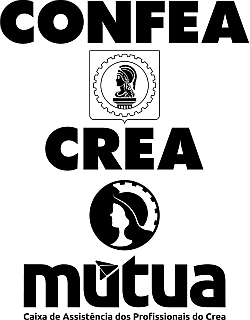Uma análise empírica da padronização de frota de companhias aéreas e os efeitos de fatores operacionais
DOI:
https://doi.org/10.14295/transportes.v26i3.1587Keywords:
Fleet management, Fuel costs, Technological innovation, Business strategy, Environmental policy.Abstract
This paper develops an econometric model to assess some of the determining factors of the fleet standardization strategies of airlines. Standardization is considered at the aircraft model level, after controlling for the effects of manufacturer and family standardization of flight equipment. The empirical model was estimated using Brazilian air transportation data and utilizes several operational variables, such as average aircraft size and fleet age, passenger flow per flight and number of served destinations. The effect of operating costs and demand factors are also incorporated into the model. The results point to a tendency towards greater standardization of the fleet in Brazil. However, increases in fuel costs may mitigate this trend by inducing a search for aircraft with more advanced technology and lower energy consumption. The research results have implications for corporate and public policies aimed at stimulating the efficient and sustainable management of the airline fleet in the country over the next few years.
Downloads
References
ABEAR (2017). Panorama 2016: o setor aéreo em dados e análises. Associação Brasileira de Empresas Aéreas, Brasília.
ANAC (2015) Anuário do transporte aéreo 2014. Agência Nacional de Aviação Civil, Brasília.
Borges Pan, A. G. e R. A. E. Santo Jr (2004) Developing a fleet standardization index for airline pricing. Journal of Air Transpor-tation, v. 9, n. 2, p. 97-110.
Brüggen, A. e L. Klose (2010) How fleet commonality influences low-cost airline operating performance: Empirical evidence. Journal of Air Transport Management, v. 16, n. 6, p. 299-303. DOI: 10.1016/j.jairtraman.2010.02.006.
Flightglobal (2011) Commonality, performance tipped Southwest to 737 Max. Washington, DC, USA.
Kilpi, J. (2007) Fleet composition of commercial jet aircraft 1952–2005: Developments in uniformity and scale. Journal of Air Transport Management, v. 13, n. 2, p. 81-89. DOI: 10.1016/j.jairtraman.2006.10.008
Seristö, H. e A. P. Vepsälainen (1997) Airline cost drivers: cost implications of fleet, routes, and personnel policies. Journal of Air Transport Management, v. 3, n. 1, p. 11-22. DOI: 10.1016/S0969-6997(97)82788-3
Zou, L; C. Yu e M. Dresner (2015) Fleet Standardisation and Airline Performance. Journal of Transport Economics and Policy, v. 49, n. 1, p. 149-166.
Zuidberg, J. (2014) Identifying airline cost economies: An econometric analysis of the factors affecting aircraft operating costs. Journal of Air Transport Management, v. 40, p. 86-95. DOI: 10.1016/j.jairtraman.2014.06.007
Downloads
Published
How to Cite
Issue
Section
License
Authors who submit papers for publication by TRANSPORTES agree to the following terms:
- The authors retain the copyright and grant Transportes the right of first publication of the manuscript, without any financial charge, and waive any other remuneration for its publication by ANPET.
- Upon publication by Transportes, the manuscript is automatically licensed under the Creative Commons License CC BY 4.0 license. This license permits the work to be shared with proper attribution to the authors and its original publication in this journal.
- Authors are authorized to enter into additional separate contracts for the non-exclusive distribution of the version of the manuscript published in this journal (e.g., publishing in an institutional repository or as a book chapter), with recognition of the initial publication in this journal, provided that such a contract does not imply an endorsement of the content of the manuscript or the new medium by ANPET.
- Authors are permitted and encouraged to publish and distribute their work online (e.g., in institutional repositories or on their personal websites) after the editorial process is complete. As Transportes provides open access to all published issues, authors are encouraged to use links to the DOI of their article in these cases.
- Authors guarantee that they have obtained the necessary authorization from their employers for the transfer of rights under this agreement, if these employers hold any copyright over the manuscript. Additionally, authors assume all responsibility for any copyright infringements by these employers, releasing ANPET and Transportes from any responsibility in this regard.
- Authors assume full responsibility for the content of the manuscript, including the necessary and appropriate authorizations for the disclosure of collected data and obtained results, releasing ANPET and Transportes from any responsibility in this regard.











